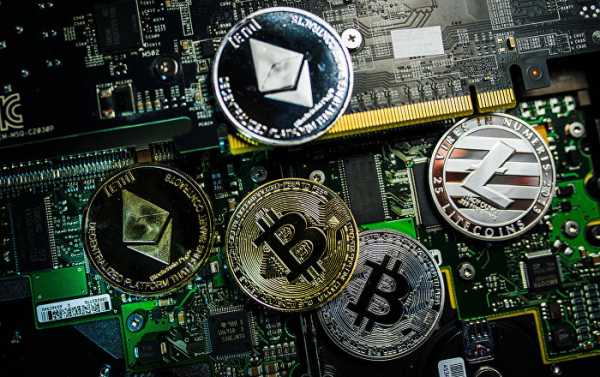
Saudi Arabia and the United Arab Emirates (UAE) have announced plans to issue a cryptocurrency for use in cross-border transactions. This, despite the fact that the Saudi Arabian Monetary Authority (SAMA) has effectively banned digital currencies in the Middle Eastern country.
The new digital currency, which will be based on blockchain technology, will reportedly only be used for inter-bank transactions between the two countries, which share a border in the eastern Arabian Peninsula, and not for customer use. No launch date has been announced.
“This is probably the first time ever that we witness the cooperation of monetary authorities from different countries on this topic. We hope this achievement will foster similar collaboration in our region,” UAE Central Bank Governor Mubarak Rashid al-Mansouri said earlier this week during the Arab #FinTex Symposium on Blockchain & Financial Inclusion in Abu Dhabi, a meeting on global banking standards and regulation for the Arab region, according to Gulf News.
Al-Mansouri noted this is “just a study” and that they “have not gone deeper into it.”
However, experts are skeptical about the plan.
“This looks like a lazy public relations initiative,” Dr. Alex Coman, a researcher at the Adelson School of Entrepreneurship in Israel’s Interdisciplinary Center Herzliya, told The Media Line Thursday. “Why not have the entire Arab League join in on this currency? That way you would have a massive body of countries doing business with one another.”
While the UAE has made moves in recent months to adopt blockchain technology for its own uses, both countries have remained standoffish toward public use of cryptocurrencies.
In Saudi Arabia, SAMA has warned citizens of the “negative consequences” of trading bitcoin, warning it “is not a currency approved within the Kingdom,” al-Arabiya reported in July 2017. An August 2018 warning noted that “virtual currency,” which it calls “get rich” schemes, “are not approved as official currencies in the kingdom and no parties or individuals are licensed for such practices by regulators in the kingdom.”
Despite this warning, in February, SAMA signed an agreement with cryptocurrency Ripple to “help banks in the KSA [ Kingdom of Saudi Arabia] improve their payments system using xCurrent,” Ripple’s payments processing system. Toshi Times also noted that in May, the Saudi Ministry of Communications and Information Technology hosted a “blockchain bootcamp” with blockchain software company ConsenSys, which focuses its efforts around the cryptocurrency Ethereum.
Likewise, Dubai has tried to wave investors and consumers off of trading in bitcoin, but has adopted blockchain and cryptocurrencies for state uses.
“The Dubai Blockchain Strategy aims to position Dubai as a leader in this global technology. Dubai is on course to become the first economy to operate its own cryptocurrency by the year 2020 and the Dubai Land Department is possibly the world’s most advanced use of blockchain by any government entity,” Rashid Yusup, the CEO of Taklimakan, which provides services in crypto education, analytics and social networking, told al-Bawaba in April.
The Dubai Blockchain Strategy is a massive plan to convert the Gulf emirate to a completely electronic transaction system governed by blockchain, Forbes explained. The plan would convert all visa applications, bill payments and license renewals to the service by 2020. As those tasks together account for over 100 million documents each year, the country would save 25.1 million man-hours, or $1.5 billion, by going paperless.
Part of the program went live in October, when consumers in the capital of Dubai began to use the government’s digital currency Emcash to make retail payments in-store and pay for government utilities, telecommunications and school fees in government shopfronts. Emcash is a state-backed subsidiary of the Dubai Department of Economic Development, which is run in conjunction with blockchain payment provider Pundi X, Coin Telegraph reported.
“Dubai is paving the way for checks and balances and they are regulating [this industry],” Nassar Achkar, CEO of the Dubai-based Hyperchain blockchain technology service, told The Media Line Thursday. “Banks are relying on the technology behind the cryptocurrency to use it because it’s faster, more efficient and more transparent.”
Sourse: sputniknews.com






